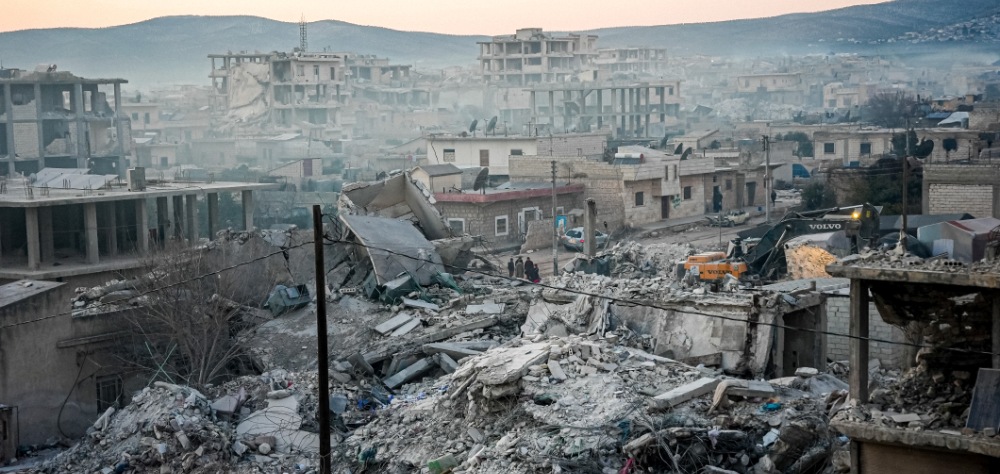Alwaght- Political and economic consequences are an inseparable part of any crisis or natural disaster like flood, drought, and earthquake. In the war-torn Syria, despite government’s shortcomings for management of crisis in the earthquake-hit regions and destruction of a large part of the country’s infrastructure by the devastating decade-long war, the Western countries have refrained from sending aids and lifting the sanctions.
Although, The US has issued a so-called six-month sanctions exemption for transactions related to providing disaster relief to Syria after earthquakes killed more than 22,000 people, Peter Ford, former British Ambassador to Syria and Bahrain, believes that "The so-called waiver of US sanctions for "earthquake relief" does nothing to ease these key sanctions, and very little to ease financial sanctions. The waiver is a cynical propaganda ploy."
"The sanctions on oil products and electricity generating equipment are the most damaging, hindering all attempts at rescue and recovery."
According to Peter Ford," Western governments and media focus on suffering in the areas controlled by non-government forces diverts attention from the immense damage in government controlled areas, which the West wants to ignore because it reminds everybody of sanctions."
Ford, who is an expert on the West Asia, says that the US sanctions against Syria initially were designed to weaken the Arab country as it faced Western-backed Islamist insurgents. But, according to Ford, the sanctions clearly that failed because the Syrian government succeeded in pushing back the insurgents.
"More recently the objective of sanctions has become to cause such intense suffering among the population that a new uprising is provoked. All this has done however is to increase suffering while failing to generate any popular movement against the government. It has also backfired by producing sympathy for Syria in Arab countries, now intensified as a result of the earthquake."
Commenting on US sanctions consequences for war-torn Syria's economy, former British diplomat says "the economy of any country experiencing over a decade of conflict would be fragile. Piling sanctions on to this situation has made it much worse and made recovery harder. The miracle is that Syria has not totally collapsed, and this is in large part due to assistance from Iran and Russia.
Regarding US sanction's effects on Syrian healthcare, ford believes "sanctions have impacted heavily on Syrian healthcare. Not only has it become difficult to obtain medical equipment because financial sanctions make any bank transactions impossible but sanctions on oil products and electricity generating equipment make it difficult to operate hospitals and ambulances."
In general, US sanctions on Syria have been heavier than any sanctions in history, including sanctions on Iraq which reportedly caused over 500,000 deaths. And this coming on top of an externally-directed and supported insurgency as well as foreign invasions and occupations, Peter Ford concludes.



























